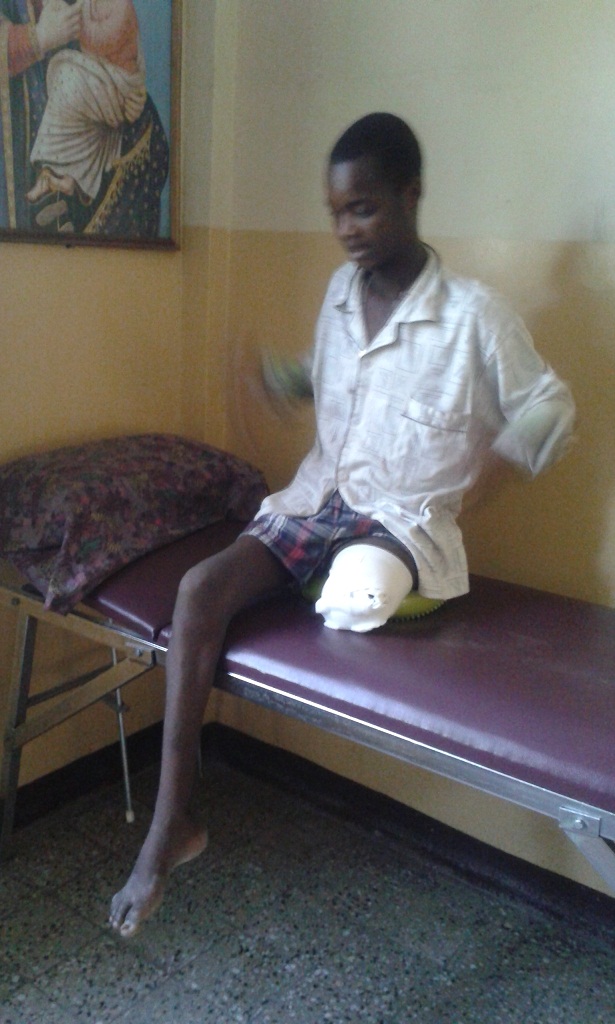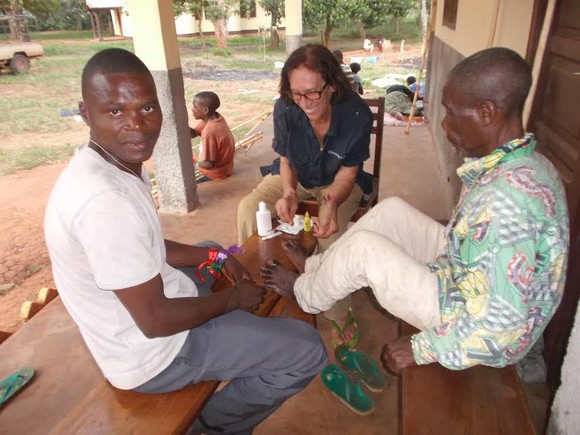
One of my main apostolates is the work of physiotherapist in the Mother Theresa Home. There, some time ago the sisters asked me to visit one of their patients – Addisu – teenage boy dying of bone cancer. Addisu’s mother died of cancer, his sister also. He fell ill 1,5 years ago, but as he came from a poor family they had no money to send him for treatment. Finally, he came to one of the missionary clinics in the village distant approx. 100 km from Awassa. Unfortunately there they couldn’t help him too much, it was too late for any treatment, so they sent him Mother Teresa Home in Awassa. As he came here he was in a terrible psychological state, really suffering due to pain, but also the fear of death. But when I met him I couldn’t believe it was the same boy. He was so cheerful, smiling, calm. Although sometimes the face passed him grimace of pain (which must be unimaginable, his leg in which he attacked the cancer looks horribly … and also there is no such strong drugs that are used for palliative patients), in a moment the smile and desire to talk returned. When I asked the boy what is his biggest dream that I might try to fulfill his wish, he said that what he wants the most now is baptism. For me it was surprising answer. But at the same time everything became clear – that his peace of heart, this joy despite suffering … It’s all thanks to God, the God who surrounded him with so much love and peace in this difficult time.
Since I met Addisu, I’ve started to pray for him a lot and also sking for prayers of all my friends. And thus we could experience how much powerful prayer is!

There was a chance to consult with other doctors and they found that lung lesions are not cancer metastasis and that it is not too late for amputation, which could save his life! On one of our Bible fellowship meetings (where we always have a prayer for different issues) I mentioned the situation of Addisu and it turned out that the husband of one of the members of our group is a surgeon! And that’s one of the best in Awassa! Then I could see how God starts to work and connect all the puzzles! We had appointment with the doctor in very short time (because Addisu’s suffering began increasing by spreading the infection from the wound on the leg) and the next day there was surgery! Addisu is so amazing! And the prayer probably gave him a lot of peace that once they were taking him to the operating room, he showed no sign of fear or sadness that he would lose his leg but he radiated joy. Because he will live! After a few days, they discharged him from the hospital and now we work intensively with physiotherapy in order to make him walking again. And also another miracle in the whole situation – the father of Addisu, who after the death of his wife and daughter, seeing dying son completely separated from the boy… It was too much for him to see the next family member dying of cancer and unable to do anything about it. He tried to forget sadness and pain in alcohol … But now when he saw that his son would live, came to Awassa and was caring about him so nicely! It is so beautiful! That God heals not only the boy’s body but also his relationship with father … Although it is known that still a lot ahead of them, so let us pray on!
Madzia Plekan CLM in Awassa Ethiopia











